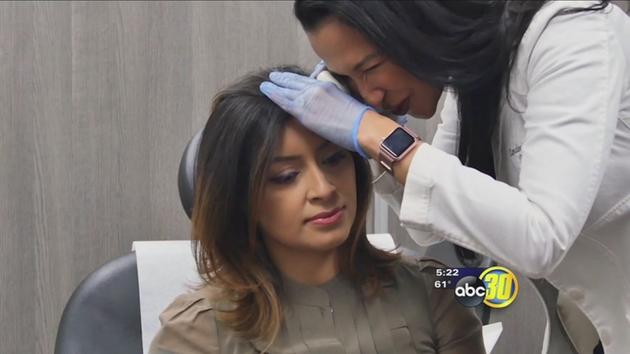
“Every time my hair would fall out, every time I’d look in the mirror, every time I’d brush my hair, especially in the shower, globs of hair would just fall down.”
Initially Damian tried drug store treatments and even looked up do-it-yourself remedies on Youtube. When nothing worked, she turned to a board certified dermatologist.
“Millennial hair loss is something that I’m seeing quite a bit of in my practice,” said Dr. Candace Thornton-Spann, Dermatologist.
Dr. Spann said there is no evidence hair loss happens more to millennials than to earlier generations. But while previous generations hid under wigs, millennials are different.
“In this generation, there is no taboo, there is only the drive to seek answers and I think that’s probably what’s driving the increase in numbers that we’re seeing,” said Dr. Spann.
There are many known causes of hair loss in young women including hormonal changes, autoimmune diseases, thyroid disorders, and stress. Which is what caused Damian’s lost locks.
“I suffer from anxiety, from depression, and especially when you notice that you’re losing so much hair, the stress only gets worse.”
What you eat, or don’t eat, can make a difference too.
“The trend these days is to exclude large parts of the diet. So, I see young women who may have completely stopped eating meat. Hair is made of protein, so it makes sense that if you are not getting adequate protein, you cannot grow adequate hair,” said Dr. Spann.
Treatments for hair loss vary from supplements to surgery. Damian ended up using a professional three-step regimen recommended by Dr. Spann and she’s already seeing results.
“I’m so much happier now, I’m always just flippin’ my hair.”
In addition to all the health-related causes of hair loss, doctors say many of today’s popular styling practices can damage hair, too. Like tight braids, over-bleaching or dying, and improper extension use.
As for the cause of hair loss in men, medical experts say it’s usually always related to testosterone levels.

